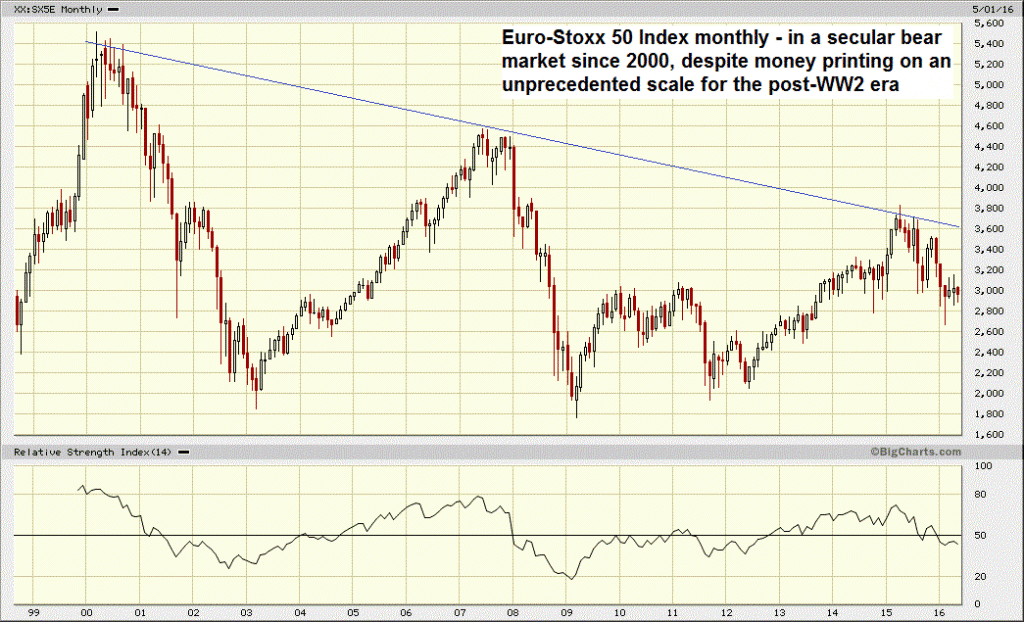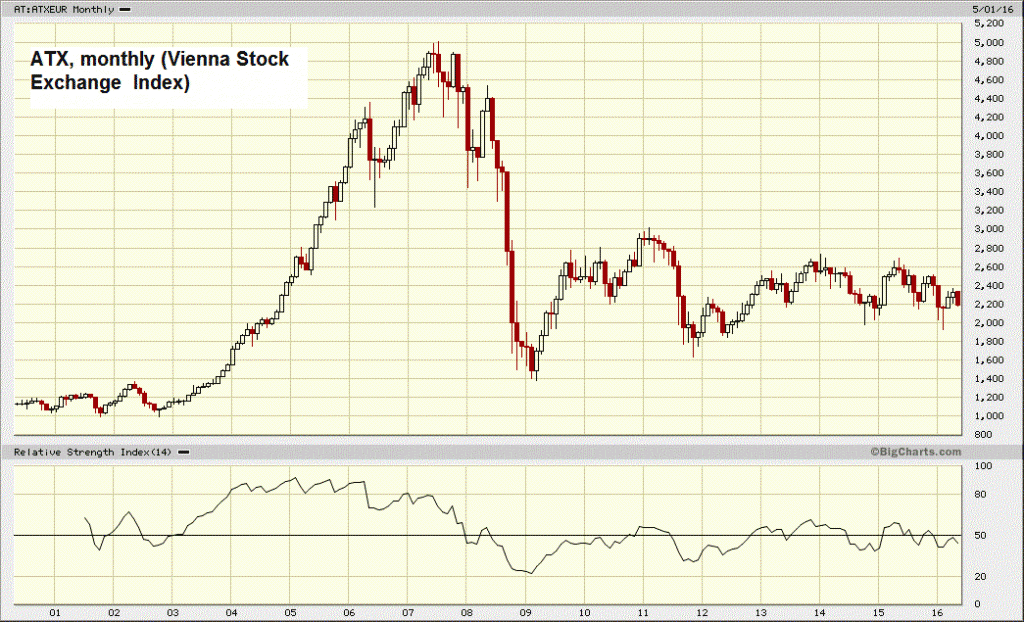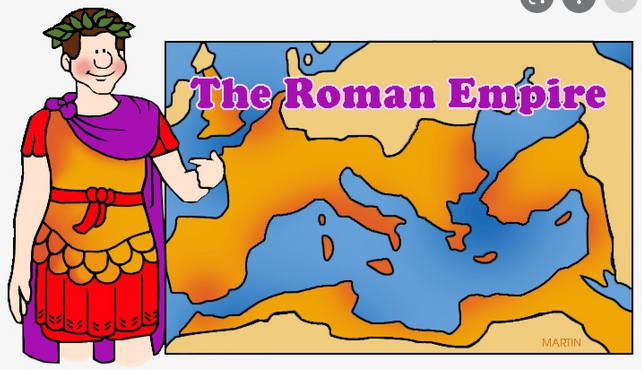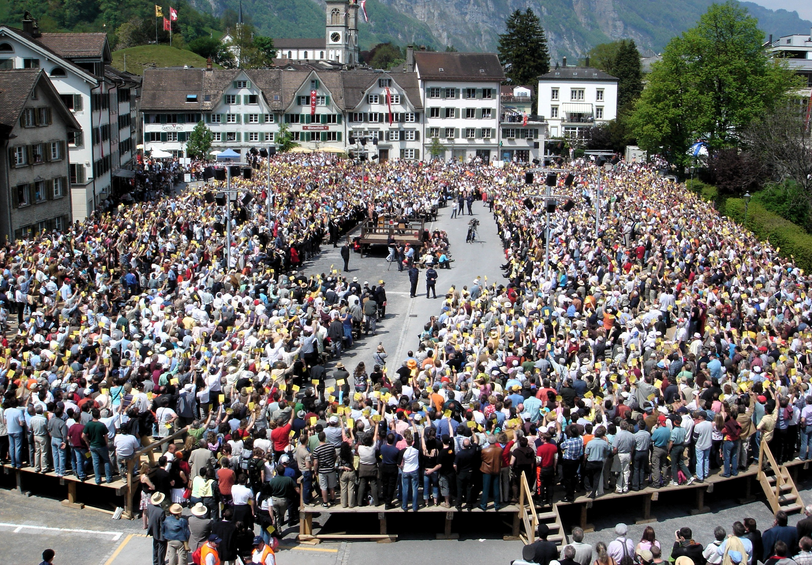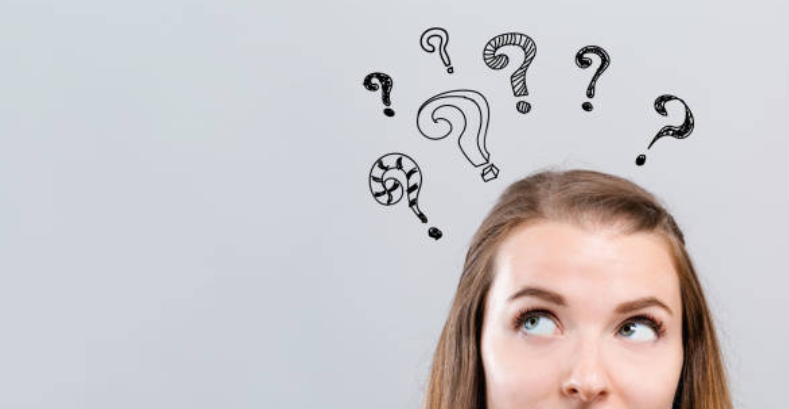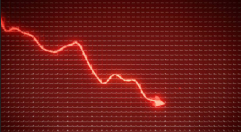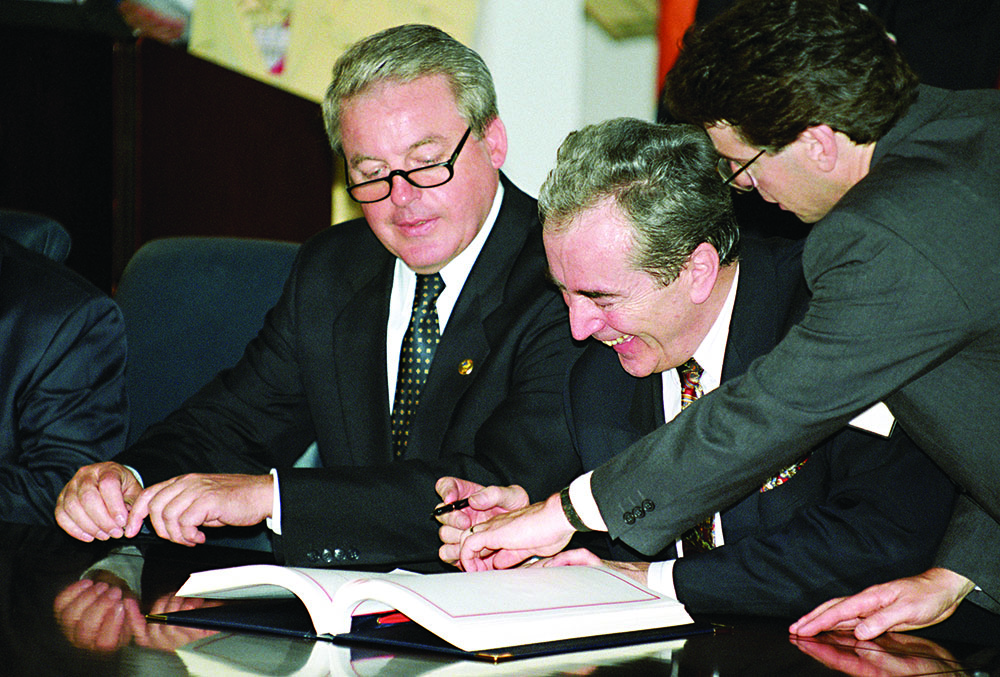
Austria is a small European nation that has made the grievous mistake of needlessly joining the EU in 1995, together with Finland and Sweden. Austria’s neighbor Switzerland, which is of roughly similar size and likewise militarily neutral, proved to have far better instincts. The Swedes subsequently at least had the good sense to stay out of the euro zone. It seems if there is a mistake to be made, Austrian governments will eagerly make it. - Click to enlarge
Trapped in the EU
Austria is a small European nation that has made the grievous mistake of needlessly joining the EU in 1995, together with Finland and Sweden. Austria’s neighbor Switzerland, which is of roughly similar size and likewise militarily neutral, proved to have far better instincts. The Swedes subsequently at least had the good sense to stay out of the euro zone. It seems if there is a mistake to be made, Austrian governments will eagerly make it.
Austria’s former foreign minister Alois Mock grins happily as an EU minion shows him where to make his cross in order to sign away his government’s sovereignty. This may have seemed a good idea at the time, but it has turned out to be an extremely dubious bargain in retrospect. Looking on is former chancellor and banker Franz Vranitzky, who judging from his body language seemed a trifle less sure about the whole thing.
To be fair, back in 1995 it actually didn’t look like a mistake, at least superficially. The EU accession promised to hasten the privatization of the country’s many at the time still state-owned industries, as well as the dissolution of numerous government monopolies (such as on tobacco and gaming). Moreover, numerous restrictions on trade and capital movements which had been in place for a long time stood to be repealed as well. In other words, it seemed as though government would actually shrink.
Only those who really paid close attention and thought more thoroughly about the entire process realized at the time what a trap the Austrian government was walking into. Led by a socialist chancellor (previously the CEO of a big Austrian bank, brought in by the socialist party for his credentials as a “technocrat”) and a nominally conservative foreign minister, it signed over its sovereignty to an emerging socialist super-state. Bummer.
However, joining the EU was in keeping with the then prevailing social mood. The mid 1990s were a happy time – togetherness and harmony were all the rage. A few years earlier the communist Moloch had imploded, and technology and economic productivity continued to make great strides around the mid 90s – e.g. the internet had just begun to be properly established. A spirit of optimism suffused everything, which found expression in one of the greatest stock market manias of all time over the next five years.
Unfortunately for the citizens of Europe, Ludwig von Mises will eventually be proved just as correct about the future of the so-called “third way” system of the modern-day socialistic regulatory welfare/warfare state as he was about the hard core Marxist-Leninist version of socialism. It is a doomed system, and its eventual demise promises to be quite spectacular and painful. Mind, it may not happen for many years yet, but let us not forget that rather scary previews have already been delivered by Greece and Cyprus.
As Mises pointed out, there is actually no “third way” – at some point people will have to choose between the free market and socialism. It is in essence the choice between a rational economy, civilization and progress on the one hand, and creeping authoritarianism, stagnation, and decay on the other.
Large parts of the population have by now woken up to the fact that the EU is effectively ruled by unaccountable bureaucrats and that once sovereign governments have devolved into little more than regional authorities executing EU directives – but voters are faced with choices in the political arena that seem not particularly enticing.
Over the past 15 years two of the largest bear markets in history have taken place, and if one looks at the Euro-Stoxx Index, one can actually see that European stock markets as a whole have been in a secular bear market since the year 2000. It seems rather obvious that the social mood in Europe has turned deeply negative, and not only because stock markets are so weak. We have discussed the political signs late last year already (see “Incumbents Swept from Office Around the World” for details).
It actually appears that the phenomenon is a global one, but arguably it is especially pronounced in Europe these days, boosted by the succession of crises the EU has gone through. As a result of this, European electorates are revolting – and Austria’s voters are no exception.
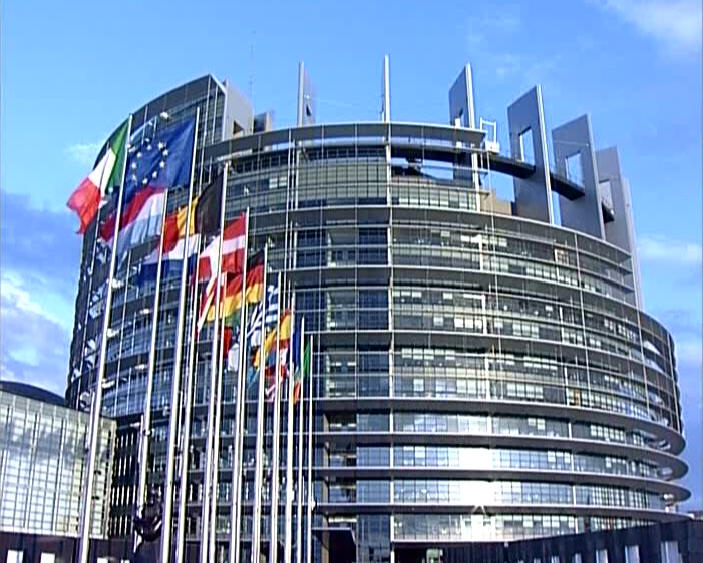
Austria is a small European nation that has made the grievous mistake of needlessly joining the EU in 1995, together with Finland and Sweden. Austria’s neighbor Switzerland, which is of roughly similar size and likewise militarily neutral, proved to have far better instincts. The Swedes subsequently at least had the good sense to stay out of the euro zone. It seems if there is a mistake to be made, Austrian governments will eagerly make it. - Click to enlarge
Democratic Fun and Games: Watermelon vs. Right Wing Populist
Unfortunately, there is little to be had by way of a libertarian political tradition in Europe. Classical liberalism has faced massive opposition by various statists (both from the right and the left of the political spectrum) since the late 19th century – in spite of the fact that it was the main force promoting both the rise of the democratic order and Europe’s growing prosperity.
The details of this historical evolution are a topic for another day though – fact is that as a result of the lack of a well-established classical liberal tradition, European voters are faced with exceedingly poor choices. The existing political establishment is unanimously opposed to the citizenry’s growing EU skepticism. This is not terribly surprising: the EU creates winners and losers, and the biggest winners by far are bureaucrats and politicians.
The EU apparatus is a giant and highly profitable sinecure for political has-beens (as a glaring example, just take a look at the EU’s “digital commissar” – quite possibly the least qualified person on the planet for this useless and vastly overpaid job) and a Godsend for cronies of all stripes. The more political power is centralized in Brussels, the more the influence of voters on matters concerning their lives declines – and they are getting increasingly restless.
Popular discontent with the EU has led to the rise of political opposition to established mainstream parties. This opposition has been routinely portrayed as “far right” in the mainstream press, whether or not it actually deserved the moniker. This in turn has created a feedback loop. For instance, the once primarily euro-skeptic and fairly pro-free market AfD in Germany has chucked its entire former leadership and is now focusing almost exclusively on its anti-immigration program (which is currently a great way to get votes).
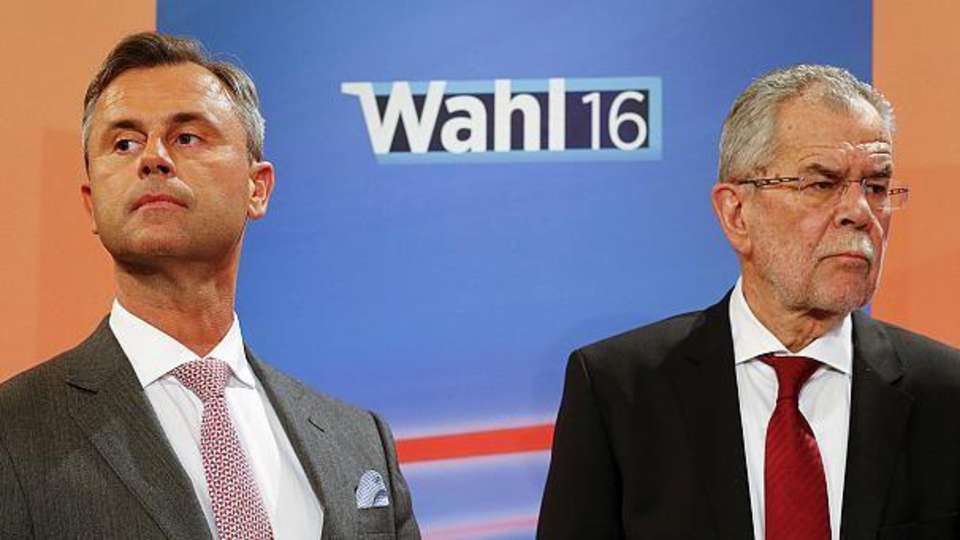
Austria is a small European nation that has made the grievous mistake of needlessly joining the EU in 1995, together with Finland and Sweden. Austria’s neighbor Switzerland, which is of roughly similar size and likewise militarily neutral, proved to have far better instincts. The Swedes subsequently at least had the good sense to stay out of the euro zone. It seems if there is a mistake to be made, Austrian governments will eagerly make it. - Click to enlarge
In Austria, a “grand coalition” between the socialist and conservative parties has ruled for the past 30 years (with the exception of a 4 year period in which the conservatives were in coalition with the Freedom Party, which caused the EU to impose sanctions on Austria). These two parties have been Austria’s dominant political parties for the entire post WW2 period. Both once used to occasionally command absolute majorities in elections.
The grand coalition was originally supposed to be a temporary arrangement. However, it evolved into a kind of quasi-dictatorship, in the sense that for all practical purposes, it became simply impossible for voters to actually vote this government out. The two big parties always managed to retain a majority together, in spite of the fact that both lost support quite quickly and noticeably. Today their support has shrunk to not even half of its former size.
The same is incidentally happening in Germany, where a grand coalition of two similar mainstream parties has hastened the implosion of the social democrats, support for whom has just plummeted to less than 20% for the first time in 24 years. Meanwhile, the two ruling mainstream parties in Austria have probably just realized that even together, they are no longer likely to achieve a majority.
Among the five contenders taking part in the first round of the recent presidential election, the two mainstream party candidates came in fourth and fifth. The (somewhat misnamed) Freedom Party’s candidate Norbert Hofer received the most votes (around 35%), while second place was taken by former Green Party member Alexander van der Bellen (with around 21%).
The run-off election this weekend thus offered Austrian citizens the choice between a right-wing populist whose main saving grace is his EU skepticism, and a red-green watermelon, who in spite of his superficial status as an outsider, essentially represents business as usual. Van der Bellen has a very favorable view of the EU and recently stated that he thinks “EU Commission president Mr. Juncker is a very honorable man”. Mr. Jean-Claude “Master of Lies” Juncker returned the compliment by letting it be known that he wished for van der Bellen to win the election. Similar sentiments were expressed by Martin Schultz, the president of the farcical EU parliament.
A Pointless Exercise
As it turned out, the run-off election result was too close to call as of Sunday night – the two candidates were running neck-on-neck, and the outcome will only be known once all absentee ballots have been counted. Oddly, this has resulted in a lot of hand-wringing in the European press about Austria being “divided”. Say what? Would it be any less divided if the outcome were a “clear” 51:49 majority for one of the two candidates?
The exercise seems pointless either way. While a Hofer victory may “send a message” to the EU, it is extremely unlikely to change anything. Hofer’s party wants to gain political power of course, and seems likely to emerge as the country’s largest party by a good margin in the next general election. However, when it ruled in coalition with the conservative party for four years (2003-2007), it quickly became evident that its main goal had been to obtain a place closer to the trough. Voters electing the party in order to protest against the status quo are no doubt bound to be disappointed.
This brings us to a recent conversation between Jeffrey Deist of the Mises Institute and Joshua Bennet of the Patriot’s Lament Show. The upcoming US presidential election is actually very similar in many respects (a “populist protest candidate” who is clearly not a libertarian is competing with an establishment welfare/warfare socialist). As Mr. Deist correctly points out, if one looks at the actual differences between the policies of modern-day establishment parties, they are usually so marginal as to be nearly non-existent (we were e.g. quite surprised to learn how many illegal aliens have been deported under the Obama administration).
Elections are mainly decided based on emotional and psychological factors – actual policies have little to do with this. The results of elections are always “divisive”, as usually nearly half of the electorate doesn’t get what it wants. Mr. Deist concludes that there is no point in even worrying about the outcome. Instead he argues that “libertarians should focus on making the case for decentralizing power. Liberty will never come from the White House, but from winning over the hearts and minds of our friends and neighbors in our own communities.” (naturally the same holds with respect to analogous institutions elsewhere). We highly recommend taking the time to listen to the clip:
Jeffrey Deist on elections and what people who are skeptical of government should focus on
We definitely agree with Mr. Deist that there is no point in ditching one’s principles just because the strategy seems to offer a more realistic chance to achieve “change from within”. It is far better to focus one’s energies on what one can actually change and influence, rather than on what one cannot.
We had a good laugh at his comment beginning at the 13:20 mark about a new book in which an anonymous former Congressman “reveals” that members of Congress actually don’t care one whit about their constituents, are only voting in favor of special interests and are primarily in Washington to look out for themselves. Shocker! As he notes, anyone surprised by such “news” has to be incredibly naïve.
Conclusion
The recent election in Austria is mainly interesting because it once again demonstrates that the established political elites have apparently underestimated the growing discontent in Europe. As we have pointed out previously, a worsening negative social mood trend has implications for financial markets as well – it makes “risk assets” even more risky. At the moment, it inter alia also makes a pro “Brexit” vote in the UK much more likely than it would otherwise be.
It is vain to hope for change through the existing political framework. A pluralistic democratic system is certainly vastly preferable to an autocratic one, but voters stand little chance of achieving the profound changes they apparently want. Moreover, it is doubtful whether the reduction of state power is on anyone’s menu. As individuals we are generally far better served by concentrating on our immediate surroundings and things that actually are within our power to influence.
As Mr. Deist correctly notes, in the marketplace even people who normally can’t stand each other will peacefully cooperate to everyone’s advantage. This is far better than the coercion for which government and politicians vying for votes stand.
Addendum:
In the meantime it has turned out that watermelon has won the election with 50.3% of the vote. Commissar Juncker need not lose any sleep over it anymore.
Charts by: BigCharts
Full story here Are you the author? Previous post See more for Next post
Tags: AfD,Ludwig von Mises,Miscellaneous,newslettersent









